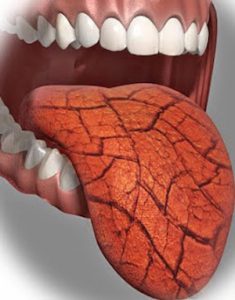 Did you know that the key substance in protecting your mouth from harmful bacteria is saliva? Indeed, saliva plays an intricate role in keeping your mouth, tongue, and teeth healthy. Without saliva, oral health sufferes severely. Let’s see why.
Did you know that the key substance in protecting your mouth from harmful bacteria is saliva? Indeed, saliva plays an intricate role in keeping your mouth, tongue, and teeth healthy. Without saliva, oral health sufferes severely. Let’s see why.
Saliva: Your Natural Mouthwash
Often mouthwashes are used to refresh the breath and clear away vestiges of food particles. Saliva performs these functions and much more. For instance, your teeth need certain proteins to protect them. Saliva carries and delivers these proteins to teeth surfaces. Whenever, wounds occur inside your mouth, proteins are required to repair them. Again, saliva serves a vital function in bringing the necessary proteins to wound sites.
Just as an engine utlizes lubricants to reduce wear, our mouths and teeth benefit greatly from the lubrication saliva provides. The lack of saliva leads to early tooth decay and tongue problems. As saliva decreases, substances begin to adhere to the surface of your teeth. In turn, bacterial growth increases due to plaque accumulation. Soon teeth will begin to suffer from decay. Saliva also aids digestion and when it is lacking, swollowing suffers.
If saliva is chronically missing from your mouth, you most likely are suffering from Dry Mouth Syndrome (or Xerostomia).
Common Causes of Dry Mouth Syndrome
Chronic Dry Mouth Syndrome is can be the result of a medical condition such as diabetes, Sjögren’s Syndrome, or severe stress. However, medications used to treat a malady are the most common cause. There are literally hundreds of medications that have oral dryness as a side effect. These drugs do not harm salivary glands but they do limit their production.
Telling sign of dry mouth syndrome include:
- Consuming a lot of water and still feeling dry mouth
- Marked increases in tooth decay
- Dry pains associated with wearing dentures
- Chewing difficulties and hard, dry swallows
- Change or loss of taste
If you believe you are suffereing from Dry Mouth Syndrome, schedule a dental visit. Often a dentists or hygienist can identify treatments that can significantly reduce Dry Mouth Syndrome.
